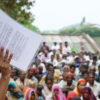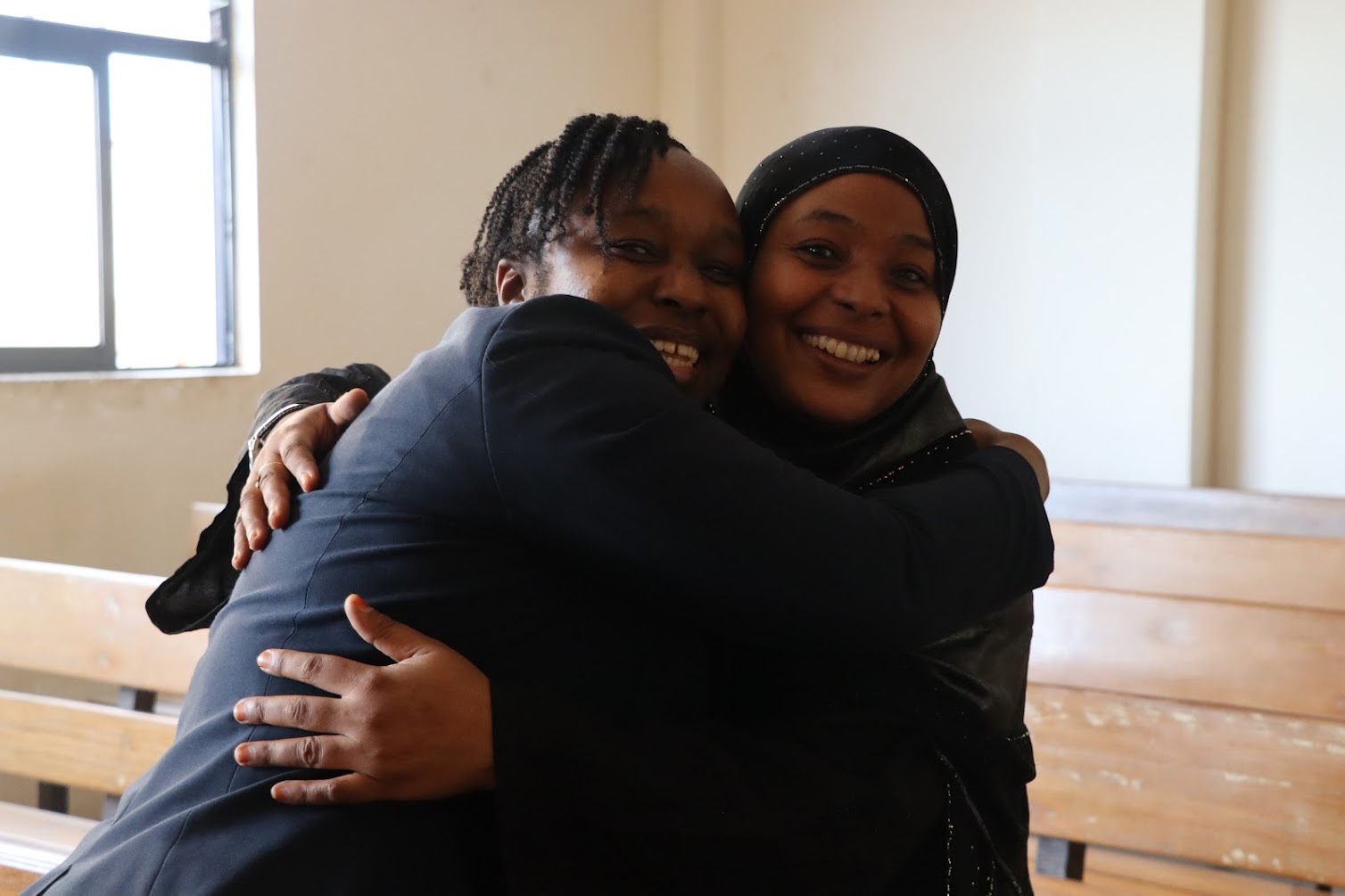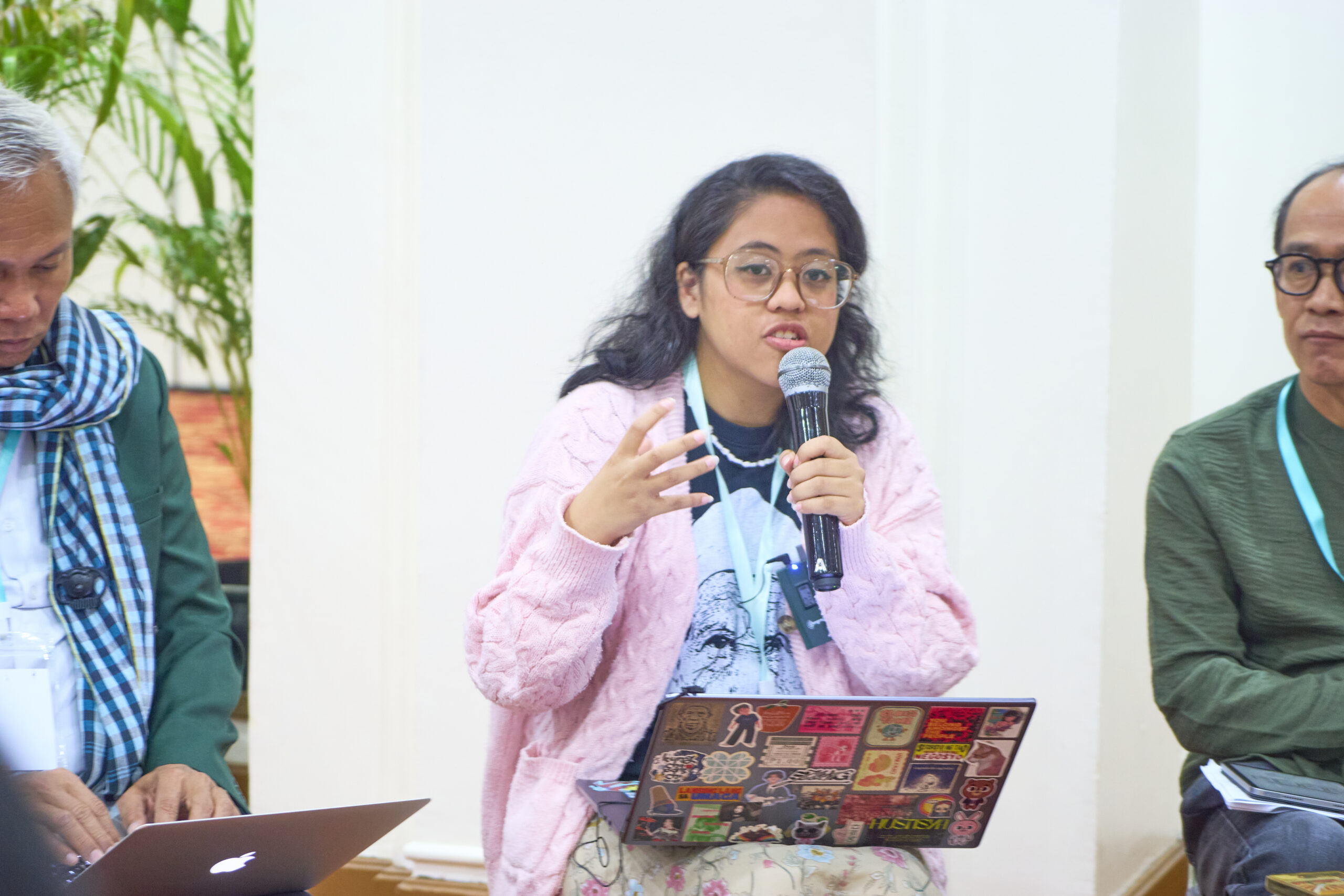The Legal Empowerment Fund (LEF), a program of the Fund for Global Human Rights, announced today that it has selected 39 grassroots activists and organizations in 29 countries to receive $1.3 million in flexible, two-year grants. The full list is available below. (Four grantees have been omitted from the list due to the sensitive nature of their work.)
These groups comprise the second-ever cohort of LEF grantees. The first cohort, announced in July 2022, includes 49 additional grassroots groups using legal empowerment strategies in their communities.
WHAT IS LEGAL EMPOWERMENT?
Check out our Fund 101 explainer.
Both cohorts were selected through a participatory review process from more than 4,800 activists and organizations that responded to our first open call for proposals. We received applications from 153 countries, requesting over $233 million in funding. This staggering need underscores the lack of funding available to frontline groups worldwide—and the life-changing work that could be resourced with greater investment.
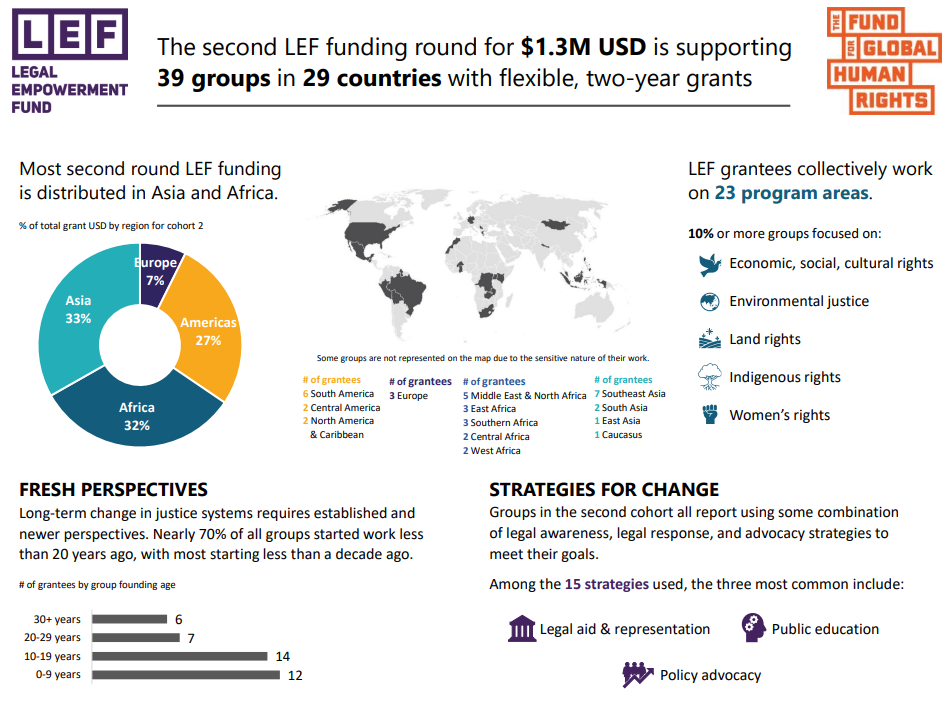
The 39 groups that make up our second cohort span the globe from Armenia to Zambia. Their work focuses on issues including women’s rights, environmental justice, and Indigenous peoples’ rights. The common thread between them is that they all use some kind of legal empowerment strategy—most commonly legal aid and representation, public education, or policy advocacy—to address systemic injustice and inequality.
The LEF was created in 2021 as the first grantmaking initiative solely dedicated to supporting the grassroots legal empowerment movement. Around the world, more than 5 billion people lack access to justice. That means that when their human rights are violated, they have nowhere to turn for help. The LEF aims to close this global justice gap by resourcing frontline activists and organizations that are helping their communities know, use, and shape the law.
Keep reading to learn more about four of the new groups we’re supporting and to explore the full list of grantees.
Meet the Activists
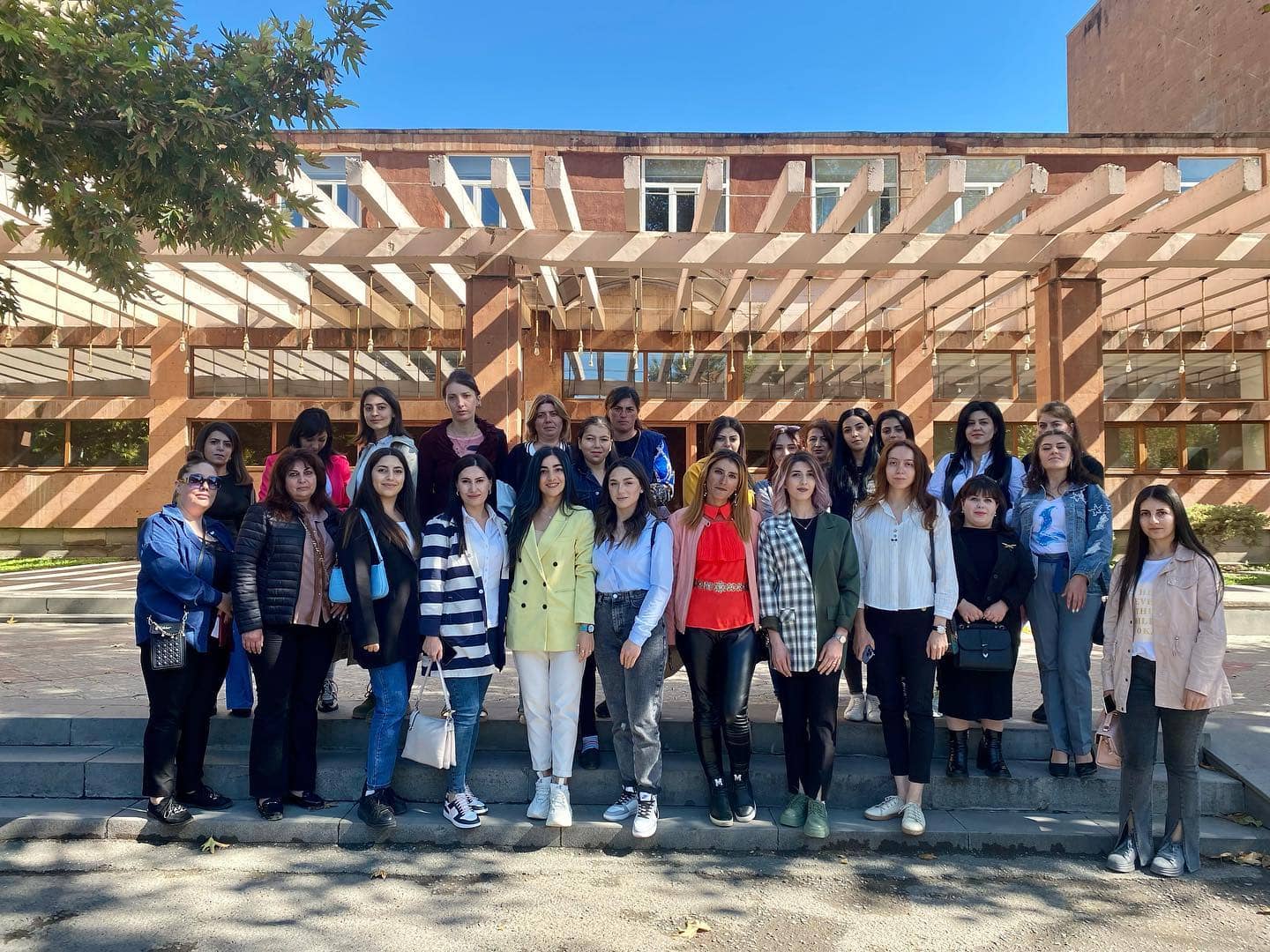
Women’s Rights House
Armenia
Women’s Rights House was established in 2017 with the goal of preventing gender-based violence, protecting women’s rights, and promoting women’s economic inclusion in Armenia. They provide free legal counsel to women and girls who have faced domestic or sexual violence. They also offer regular trainings to educate women about their economic, political, and social rights.
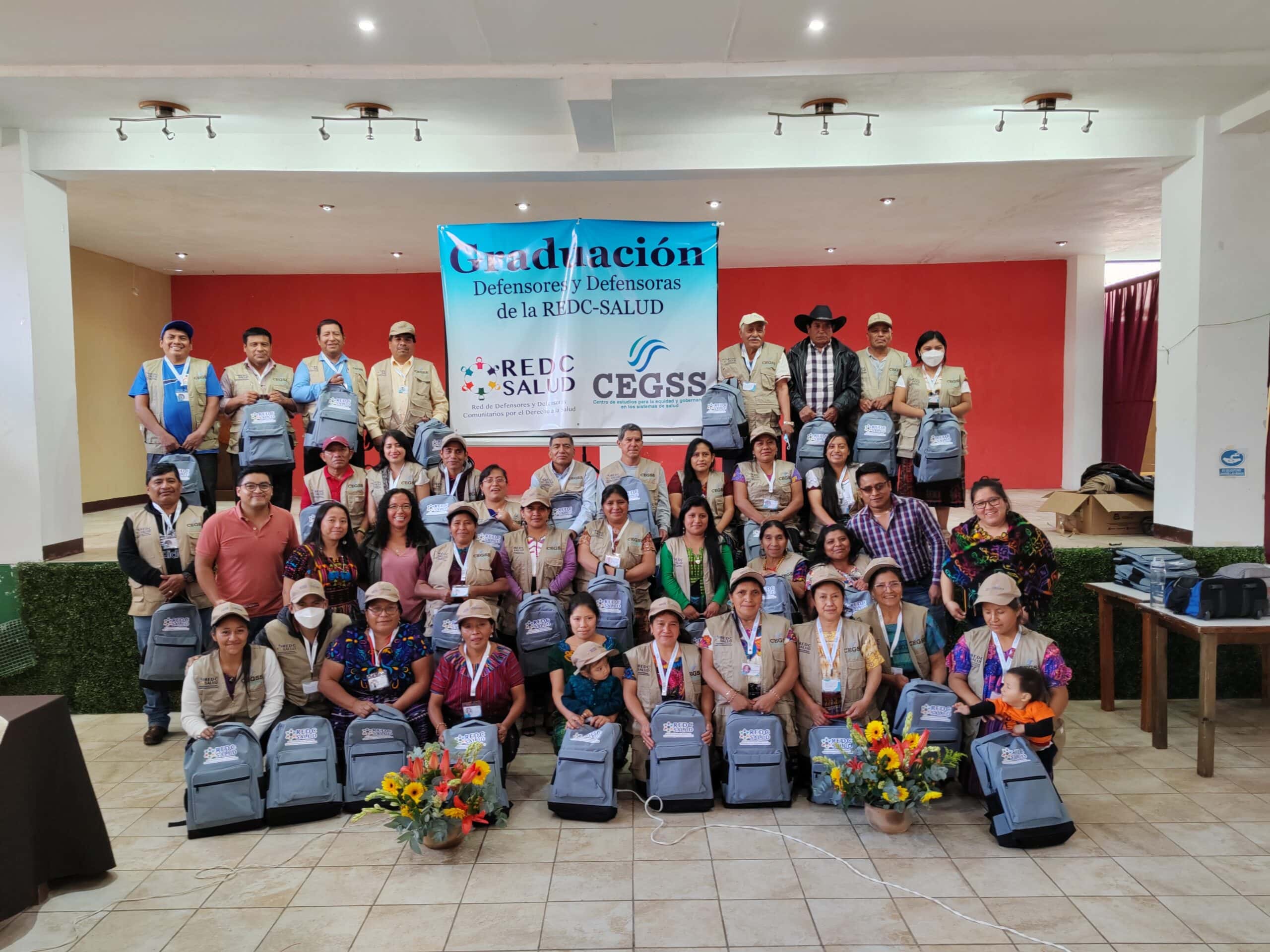
CEGSS
Guatemala
Centro de Estudios para la Equidad y Gobernanza en Los Sistemas de Salud (the Center of Studies for Equity and Governance in Health Systems, or CEGSS) aims to improve Guatemala’s health systems governance through collective analysis and participatory action research. Their unique model empowers formerly excluded communities to be researchers and agents of change.
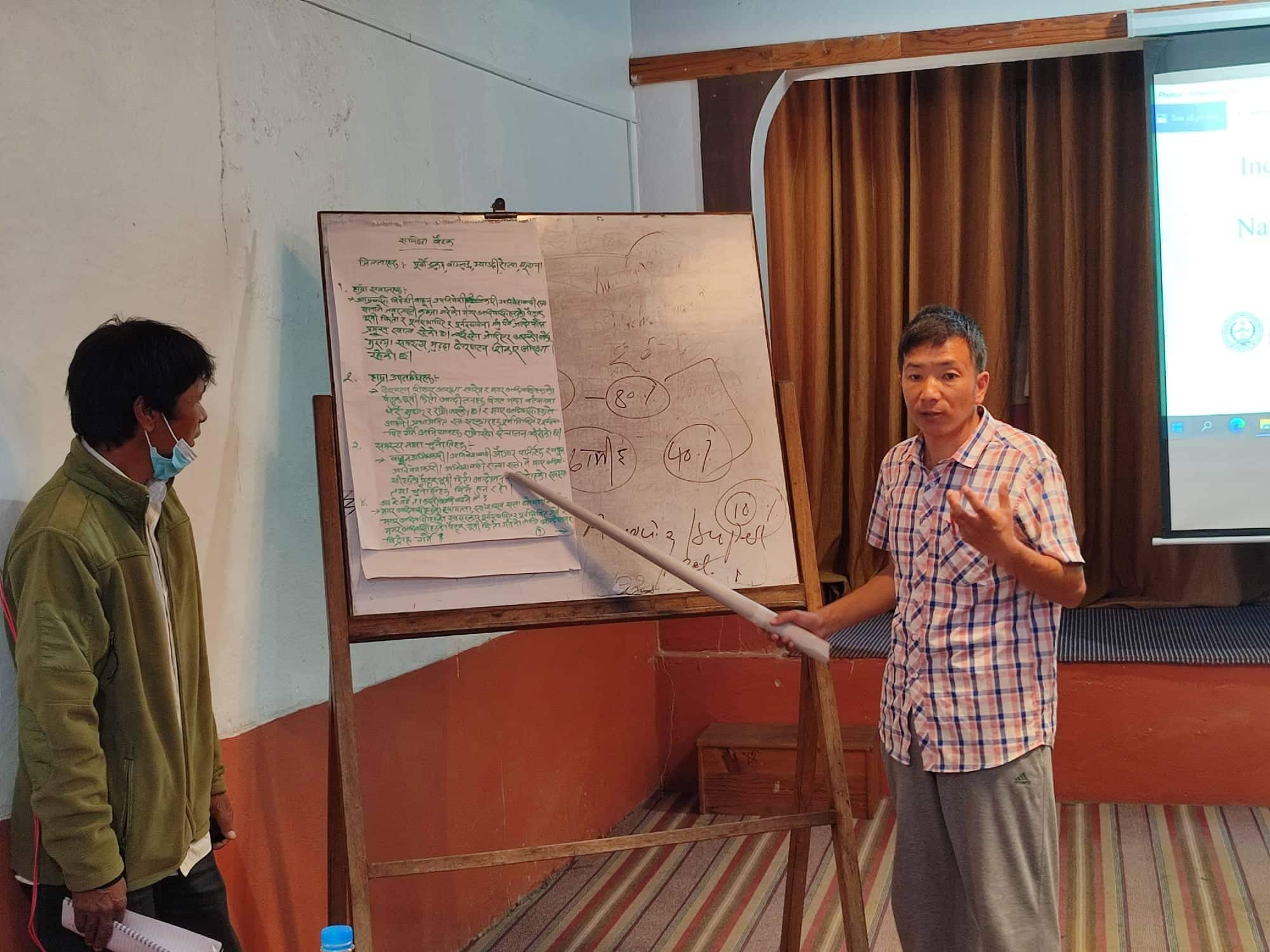
LAHURNIP
Nepal
The Lawyers’ Association for Human Rights of Nepalese Indigenous People (LAHURNIP) defends the rights of Indigenous peoples in Nepal. Established in 1995 by a group of Indigenous lawyers, LAHURNIP uses strategic litigation to hold the Nepalese state and corporate actors responsible for violating the human rights of Indigenous communities.
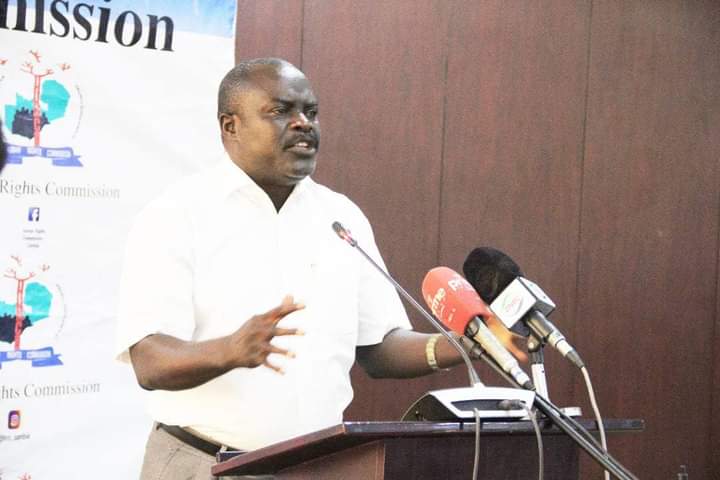
PRISCCA
Zambia
Prisons Care and Counselling Association—or PRISCCA—was formed in Zambia’s Kamfinsa State Prison by a group of prisoners. The organization takes a human rights–centered approach to criminal justice reform and post-incarceration reintegration. Its membership includes current inmates, former inmates, corrections officers, and paralegals.
List of LEF Grantees
Listed alphabetically by country
Four organizations are not listed due to the sensitive nature of their work.
Brazil
Comissão Pastoral da Terra (CPT)
https://cptnacional.org.br/
CPTNacional
cptnacional
cptnacional
Associação Nacional de Quilombos para a Cooperação – Negra Anastácia e Coordenação Nacional de Articulação das Comunidades Negras Rurais Quilombolas (CONAQ)
http://conaq.org.br/
conaquilombos
conaquilombos
conaquilombos
conaquilombos
Grande Assembleia Guarani e Kaiowa (ATY GUASU) – Associação Brasileira de Reforma Agrária (ABRA) – Organização Pelo Direito Humano à Alimentação e à Nutrição Adequadas (FIAN Brasil)
https://abranacional.wordpress.com/
https://fianbrasil.org.br/
atyguasu
ABRA.Reforma.Agraria
FIANnoBrasil
atyguasu
Democratic Republic of the Congo
Vision des Filles Leaders pour le Developpement (VIFILED ASBL)
Action des Volontaires d’Innovation pour le Développement (AVID)
Germany
Berufsverband für erotische und sexuelle Dienstleistungen e.V. (BesD)
Guatemala
Centro de Estudios para la Equidad y Gobernanza en los Sistemas de Salud (CEGSS)
Guyana
South Central Peoples Development Association – South Rupununi District Council
http://wapichanao.communitylands.org/
South-Rupununi-District-Council
Indonesia
Lembaga Bantuan Hukum Masyarakat
https://lbhmasyarakat.org/
LBHM.id
LBHMasyarakat
lbhmasyarakat
Indonesia Judicial Research Society
http://ijrs.or.id/
ijrs.or.id
ijrs_official
ijrs_official
Lembaga Terranusa Indonesia
Bali Women Crisis Centre
Kenya
Kenya Alliance for Rural Empowerment (KARE)
https://www.karemp.org/
Kenya-Alliance-for-Rural-Empowerment
Malaysia
Sahabat Alam Malaysia (Friends of the Earth Malaysia)
FriendsoftheEarthMalaysia
SahabatAlamMsia
sahabat_alam_malaysia
Morocco
Al-Amal Foundation for Development
Association Démocratique des Femmes du Maroc (ADFM Rabat)
Nepal
Lawyers’ Association for Human Rights of Nepalese Indigenous Peoples (LAHURNIP)
Peru
Familias Unidas por Justicia – Colectivo de familiares de víctimas de feminicidio
The Philippines
Legal Rights and Natural Resources Center
South Africa
Rural Democracy Trust in partnership with Land Access Movement of South Africa
https://ardt.org.za/
https://lamosa.org.za/
RuralDemocracy
Inner City Resource Centre
https://icrc.org.za/
icrc01
InnerCityRC
South Durban Community Environmental Alliance (SDCEA)
https://sdcea.co.za/
sdcea
durbansdcea
sdcea_ngo
@southdurbancommunityenviro6166
United States
International Indigenous Fund for Development and Solidarity (Batani)
